Dr. Sherwood Burns-Nader, Leslie Dollar, and a group of child life students recently attended the Southeastern Association of Child Life Professionals 2nd Annual Conference at Monroe Carell Jr. Children’s Hospital at Vanderbilt. At this conference, students had the opportunity to network with professionals in the region, gain information about the latest research in the field, and further their knowledge of child life. Dr. Burns-Nader had the opportunity to meet one of our distance students (second picture) at the conference, for the first time in person after several years of working together.
|
Dr. Sherwood Burns-Nader, Leslie Dollar, and a group of child life students recently attended the Southeastern Association of Child Life Professionals 2nd Annual Conference at Monroe Carell Jr. Children’s Hospital at Vanderbilt. At this conference, students had the opportunity to network with professionals in the region, gain information about the latest research in the field, and further their knowledge of child life. Dr. Burns-Nader had the opportunity to meet one of our distance students (second picture) at the conference, for the first time in person after several years of working together. 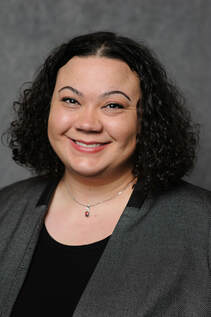 The UA College of Continuing Studies has named Dr. Kimberly Blitch a 2019 Innovation Scholar in Residence. Innovation Scholar award programs give online teaching faculty and content experts the opportunity to benefit from technology funding, and Innovation Team consultation and support toward a proposed Innovation project. Dr. Blitch's project involves course enhancement of HD 321 (distance delivery), a key foundations course in early childhood curriculum planning. In the course, students design and implement developmentally appropriate learning experiences for young children. The key learning demands in HD 321 are that students develop, implement, and reflect on their teaching practices. Students learn best practices in teaching young children, assessing their learning and development, and guiding their behavior. Students develop their teacher identities and philosophies of practice as well. Course enhancement methods will focus on: fully leveraging distance students' limited disposable time; integrating their tangible, real-world experience in their learning (as many are already practicing professionals); supporting optimal student engagement through creative and engaging instruction and supporting instructional methods/technologies; and maximizing the accessibility of all UA resources to distance learners. The College of Human Environmental Sciences expands programs to include a major in Addiction and recovery. Click "MORE" for the full story from UA News and "ON AIR" for a video clip from WVTM 13 News.
Dr. Maria Hernandez-Reif traveled to Dubai recently to share insights about the science behind touch for normal infant development. She delivered her lecture at an International Confederation of Midwives (ICM) conference. Hernandez-Reif also conducted two breakout workshops where attendees heard a lecture about the "science" of touch, followed by a video of infant massage. The midwives then had an opportunity to practice infant massage techniques on dolls.
Midwives from the Middle East, Africa and Asia attended the conference. Dr. Hernandez-Reif found them to the very engaged in learning, knowledgeable and ultramodern especially in terms of social media. A highlight of the conference was meeting the conference keynote speaker, Princess Muna Al Hussein of Jordan. One of Dr. Hernandez-Reif's take-aways from the experience was – “how much alike women are all over the world in terms of values related to children and parenting.” The Alabama Project LAUNCH Young Child Wellness Council (YCWC) recently took another step towards improving early childhood mental health and wellbeing in West Alabama. Out of 140 communities nationwide, the Tuscaloosa YCWC was selected to receive funding and support from the NOW Learning Community out of Boston. A diverse group of local stakeholders came together on Tuesday, August 28, to develop a consensus for cross system collaboration in order to support and strengthen the continuum of services for maternal and child wellbeing.
Members of the Council will attend four convening NOW events to work with other grant awardees across the country. The group expects to bring back specific action plans. NOW builds on Boston Medical Center’s (BMC) Vital Village Network approach to: promote child wellbeing; align systems of care and education in early childhood; and improve neighborhood opportunity structures that promote optimal wellbeing and reduce inequities in child health and education. “Our Tuscaloosa community of partners, including Stephanie Covarubbia with Early Intervention of CSP, and Trendle Samuel with ADPH to name a few, work hard to address gaps and inequities in children’s health and wellbeing. We are honored to be among those selected nationwide to participate in NOW and receive additional support for our ongoing work,” says Dr. April Kendrick, UA’s Director of Child Development Resources. The NOW Learning Community will support participants in building a robust set of tools to transform early childhood education and health systems in their neighborhood, city, or county. Each recipient will receive in-depth and tailored technical assistance in mobilizing community leaders; using data and storytelling tools; and communicating with diverse stakeholders. “Creating a connected community around child health and wellbeing is a goal of the Young Child Wellness Council. We are excited to participate in the NOW Learning Community because breaking down silos in our community will only help all of Tuscaloosa County to support its children and families,” says Amy Crosby, Alabama Project LAUNCH Young Child Wellness Coordinator. Boston Medical Center’s (BMC) Vital Village Network is working with communities across the country to promote child health and opportunity. Through a $2.2M grant from the Robert Wood Johnson Foundation (RWJF), Vital Village selected local organizations to form the Networks of Opportunity for Child Wellbeing (NOW) Learning Community. The Young Child Wellness Council, housed within the College of Human Environmental Sciences, was one of ten communities chosen to address barriers and develop innovative partnerships aimed at improving the early childhood experience. 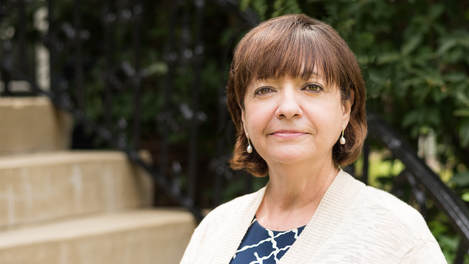 Dr. Maria Hernandez-Reif sought to answer this question with a research study she recently completed. Read about her study below and view a report from WBRC on her findings. A University of Alabama College of Human Environmental Sciences study of 393 pre-kindergarten children in the Tuscaloosa City School System indicate that more than 80 percent are ready for kindergarten. Initial results show the system’s pre-K teachers helped the children develop the needed skills for starting kindergarten, said Dr. Maria Hernandez-Reif, UA professor of human development and family studies and the primary investigator. The study examined “school readiness” as defined by the Office of School Readiness in the state’s Department of Early Childhood Education. Areas that indicates readiness include: an eagerness to learn; skills to function in a social setting; age appropriate skills to communicate and participate in problem solving or learning; age appropriate emotional skills; and good physical development and optimal health. The study was funded by the Malone Family Foundation, Project LAUNCH and the UA College of Human Environmental Sciences and assessed children at the beginning and end of the 2017-2018 school year. Tools used to evaluate the TCS pre-K program included a scale, developed by the Alabama Partnership for Children and modified by Hernandez-Reif, that identifies indicators that help children become ready for school. Teachers completed scales on children in their classrooms at the beginning of the year to provide a baseline and again at the end of the school year to measure improvement. Over 90 percent of children in TCS pre-K programs were assessed. “Child Development Resources does a lot of work with providers and families to promote optimal child development,” said Dr. April Kendrick, director of Child Development Resources at UA and collaborator on the project. “We are so pleased to see that young children in our community are performing well and are socially and emotionally prepared for kindergarten.” The analysis also found that family involvement greatly influenced children’s skill development over the school year. Children whose family were “rarely” or only “sometimes” involved in their pre-K child’s education made smaller gains compared to those whose family were “almost always” involved. Results also indicated that although the majority of the children reliably made it to school on time, a little over 10 percent of the children were sometimes or almost always absent or tardy during the first two months of school. Children whose parents were “rarely” involved were also more likely to be tardy or absent from school. “This highlights the importance of helping parents understand that they have a great opportunity to help prepare their child for school by enrolling them in pre-K and that getting them to school on time is important,” Hernandez-Reif said. Examining barriers that may be preventing parents from being involved in their young children’s education is an area that is prime for program development, she said. Hernandez-Reif said she is eager to expand the research, looking more closely at the impact of the relationships among family, teacher and child. “This research opens doors to further explore how we can support children and families.” 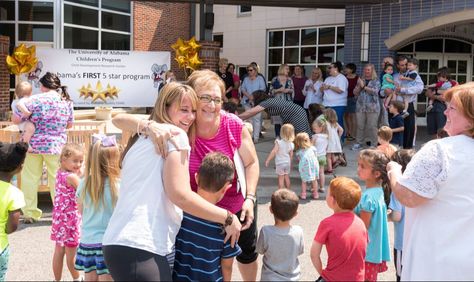 What a joyful day when everyone learned that UA's Children's Program was awarded 5-stars! What a joyful day when everyone learned that UA's Children's Program was awarded 5-stars! A leader in early care and education in the state, the University of Alabama Children’s Program is the first in Alabama to receive the highest possible rating from Alabama Quality STARS, Alabama’s Quality Rating and Improvement System (QRIS). The Children′s Program, housed on the first-floor of the Child Development Research Center (CDRC), serves over 100 children from 2 months through 5 years. The facility has 10 classrooms and a fully-equipped kitchen that serves a hot lunch and two nutritious snacks daily. In addition, there is a large room for in-door activities, a special projects room, outdoor play space, and individual rooms for working one-on-one with children. The Children’s Program focuses on promoting optimum physical, social, emotional, and intellectual development by providing children hands-on experiences based on their developmental levels. The program includes both teacher-directed and self-selected activities, placing emphasis on helping the children develop intellectual curiosity, problem-solving and socialization skills. Earning a five star rating by meeting all requirements at each STAR level, UA’s Children’s Program boasts small class sizes, excellent staff to child ratios, a developmentally appropriate curriculum, extensive parent engagement, and highly qualified teachers. Children’s Program Director Michelle Darabaris believes, “The Alabama Quality STARS Rating System is important for young children, families and our state. When an early childhood development program enrolls in the STARS program they are making a public statement of their commitment to quality child care. Each tier in the system builds on the level of quality a program provides. Receiving even one star is quite an accomplishment as it requires extra effort and intentionality in what we do each day in childcare programs. Quality rises with each subsequent star and the children ultimately benefit.” “We are thrilled that we received the highest rating of 5 STARS and the fact that we were the first in the state to do so is a tremendous honor,” says Darabaris. “Our teachers, support staff, families, administration, and college are deeply committed to maintaining the highest quality early childhood program in the state of Alabama. The 5 STARS quality rating represents our promotion of developmentally appropriate practice and our steadfast pledge to young children.” Alabama Quality STARS’ building block system rates child care center quality above the state minimum licensing requirements. A collaboration between the Alabama Department of Human Resources (DHR) and The University of Alabama, Alabama Quality STARS is part of a national systematic approach to assess, improve, and communicate the level of quality in early care and education programs. It strives to improve the quality of early care and education programs, increase the number of high quality programs, increase the number of children enrolled in quality programs, and provide a way for parents to choose a child care center. Centers that participate in Alabama Quality STARS will receive between one and five stars based on STARS standards in the areas of staff qualifications and professional development, management and administrative practices, learning environment and curriculum, and family involvement and community partnerships. 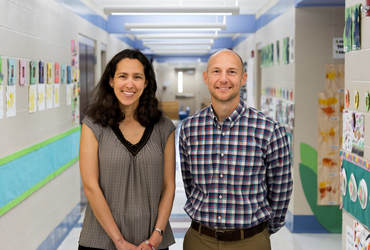 Visiting Scholar, Dr. Judith Danovitch, with Dr. Jason Scofield. Visiting Scholar, Dr. Judith Danovitch, with Dr. Jason Scofield.
Dr. Judith Danovitch, a scientist and professor from the University of Louisville who studies child development, arrived on our campus May 3 to team up with faculty member Dr. Jason Scofield on a research project. The pair are working on a study about how young children share information they have learned about science and math with others – looking at “children as teachers.”
In addition to this research collaboration, Danovitch will spend time with students and other faculty while at UA. Danovitch’s visit is her second of four that will take place during 2018 as part of the CHES Visiting Scholars Program. Danovitch serves as the Director of Undergraduate Studies in the Department of Psychological and Brain Sciences at Louisville. She is one of the principal investigators in the university’s Knowledge in Development (KID) Lab. Her research interest centers on ways children seek out and evaluate knowledge throughout their development. Recent publications of hers have appeared in the Journal of Experimental Child Psychology, the British Journal of Developmental Psychology and Child Development. Danovitch earned an AB in psychology and biology from Harvard University and a PhD in psychology from Yale University. The Visiting Scholars Program, supported by the CHES Leadership Board, pairs our faculty with outstanding scientists in their field. Scofield is enthusiastic about participating in the program, saying, “It’s great for College visibility. It’s great for the faculty member hosting the visiting scientist. And it’s great for producing important new science.” All of which encourages growth in research at CHES and enables us to continue improving lives. The University of Alabama’s Child Development Resources invited parents and children to its fourth annual lullaby concert on Thursday, February 8. The star of this year’s show, Shawn Brown, performed children’s songs in an interactive and educational style. The well-attended free community event provided opportunities for parents and their young children to experience music in a fun, family-focused way.
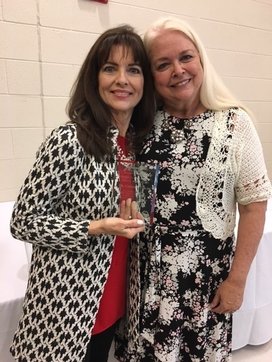 Dr. Carroll Tingle (L) receives her award Dr. Carroll Tingle (L) receives her award April 6, 2017- Dr. Carroll Tingle received an award from Jefferson State Community College for her tireless efforts to improve collaboration between two and four year colleges to provide quality, easy-to-navigate online programs for child development students to advance from CDA to AA to BA degrees (and beyond!) so that they are able to work in First Class Pre-K classrooms and other well-compensated early childhood jobs. Dr. Tingle has served as the department chair of Human Development and Family Studies since 2007 and has been a pioneer in the delivery of classes via telecommunications technology as well as a strong advocate for students completing their early childhood education degree in obtaining state teacher certification. Congratulations Dr. Tingle! |
AuthorHDFS Department Archives
September 2019
Categories
All
|

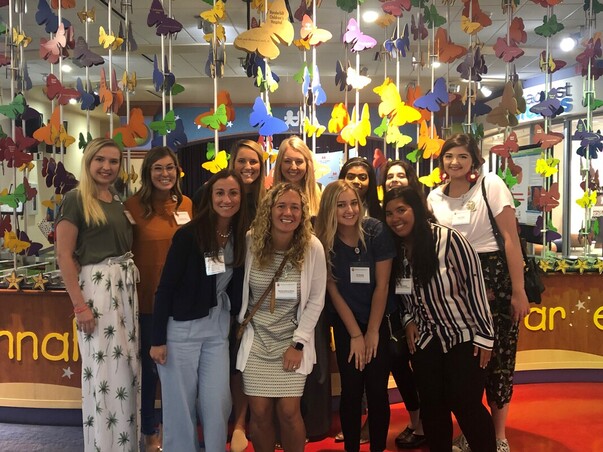
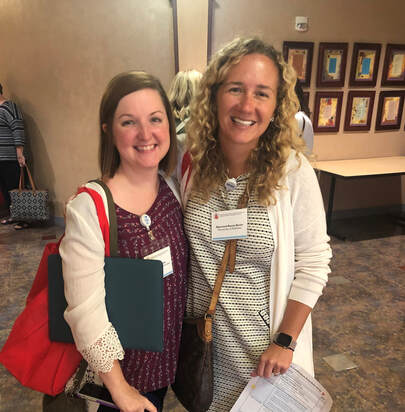
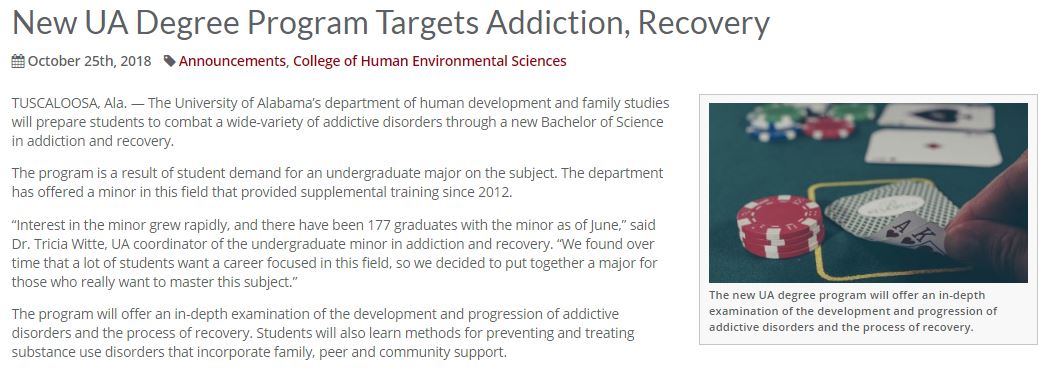
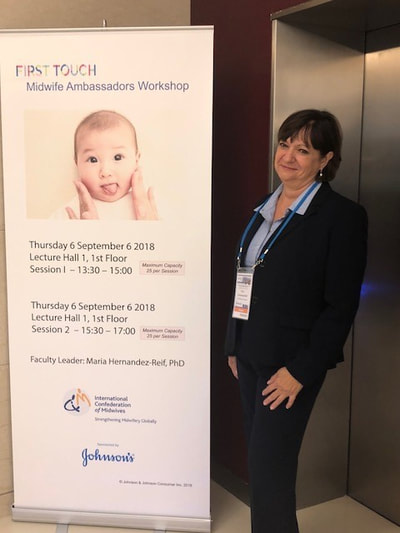
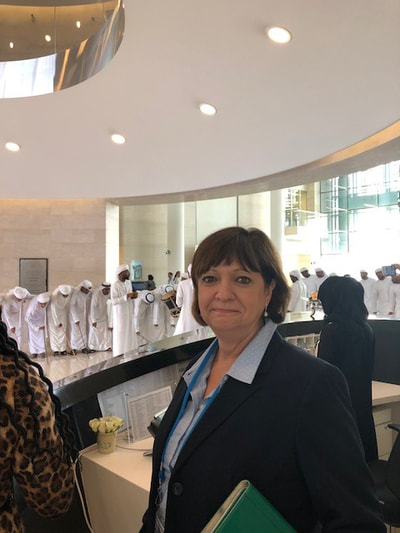
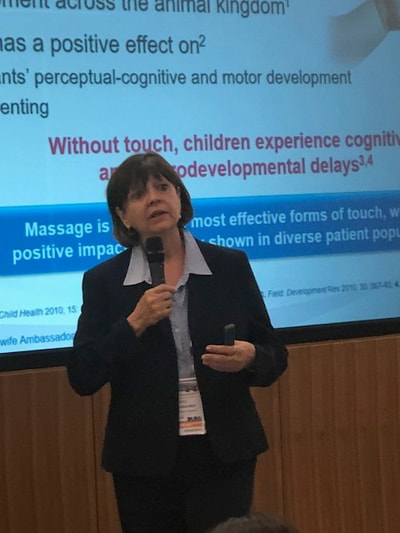
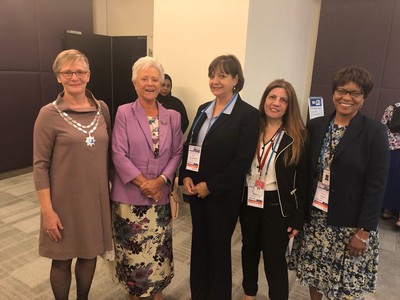
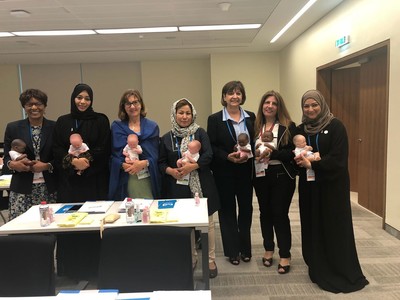

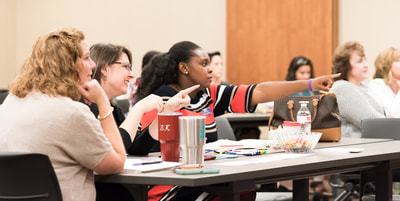
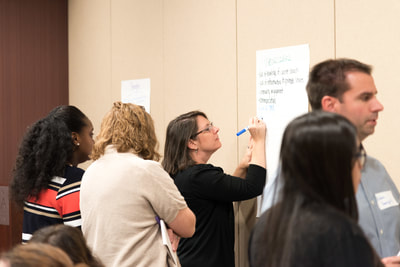
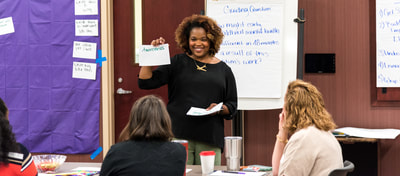
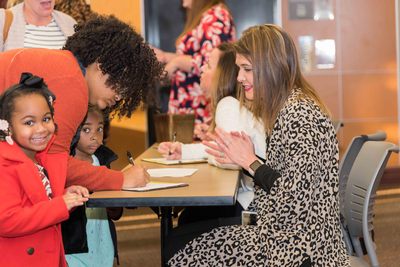
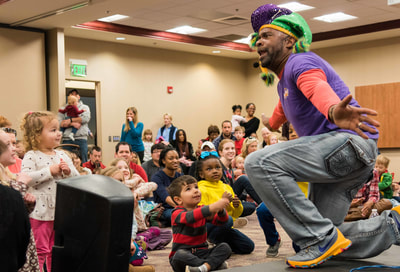
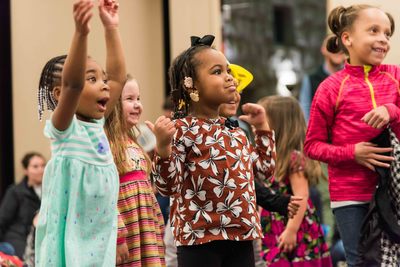
 RSS Feed
RSS Feed